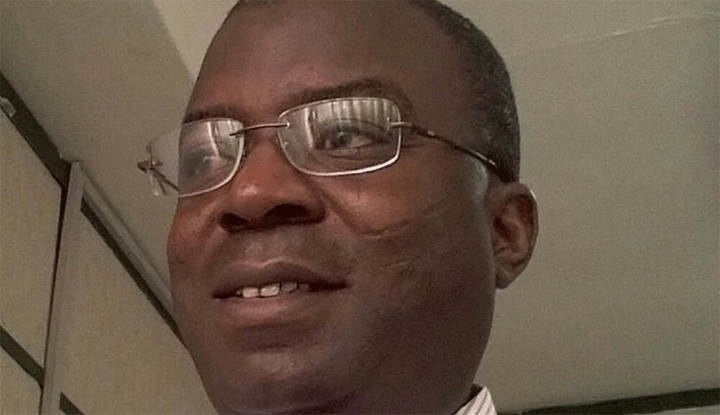The importance of sustainable development (otherwise called Corporate Social Responsibility) to companies cannot be overemphasized as it is key to the survival and continued profitability of companies. For companies, the overall aim is to achieve a positive impact on society as a whole while maximising the creation of shared value for the owners of the business, its employees, shareholders and stakeholders.
The factors driving companies to pursue a CSR agenda are fairly consistent across the corporate world and that is why many more companies around the world have incorporated CSR as a critical part of their core operations. One of such companies that prioritizes sustainability development in its operations is Shell Petroleum Development Corporation (SPDC).
Shell Nigeria is an arm of the multinational oil corporation Shell Corporation operating under the entities Shell Petroleum Development Company (SPDC) Nigeria Limited, Shell Nigeria Exploration and Production Company (SNEPCO), and Shell Nigeria Gas (SNG). It has had a presence in Nigeria since its foundation by Royal Dutch/Shell Group in 1936 and has been involved in onshore and offshore exploration and production of oil and natural gas (Shell, 2011).
The company’s operations spread out within the Niger Delta (Nigeria) and constituting the Group’s international supply chain comprise 6000km of flow pipeline networks and stations, oil fields and producing wells, gas plants, and two major export terminals (Royal Dutch Shell, 2012a; OPEC, 2011).
But due to the general lack of infrastructure and development projects provided by respective governments in the Niger Delta, SPDC has often stepped in and acted in lieu of government. “We have a strong focus on community development,” former SPDC MD Mutiu Sunmonu stated.
SPDC’s community development focus has shifted in recent years, he continued. “In the past we were heavily involved in the provision of infrastructure in the communities. We were building roads, schools, clinics and providing portable water. Though these are typical areas for government intervention, we stepped into the gap to help in improving the standard of living of local communities.”
“We are now involving more and more development partners to help in addressing community needs. Specific community development programs include our micro credit scheme and health scheme,” SPDC MD said in an earlier interview.
In 2006, in order to deepen its CSR strategy as well as ensure better impact and inclusivity, SPDC introduced a new means of involving communities directly in their own development through a framework called Global Memorandum of Understanding program or GMoU. The GMoU entails communities proposing development projects to SPDC, on behalf of its JV partners. SPDC also provides community project leaders with access to development experts and NGOs that can assist them realize their aims.
Under the terms of the GMoUs, the SPDC JV provides secure five-year funding for communities to implement development projects of their choice, which are managed by Cluster Development Boards (CDBs) under the guidance of mentoring NGOs. Projects include power supply improvement, construction of market stalls, sanitation, water supply improvements and community centres. Since the implementation of the GMoU SPDC has recorded tremendous CSR achievement across diverse areas of human endeavors.
The framework has been innovatively applied to ensure that CSR investment are deployed to have maximum impact on host communities and drive impactful socio-economic changes. Some of the major sustainability projects that have been embarked upon by the multinational oil and gas company include:
Enterprise Development
LiveWIRE is Shell’s flagship youth enterprise development programme that provides training and finance to young people between the ages of 18-35 to start their own businesses. Launched in Nigeria in 2003, this programme enables young entrepreneurs to convert their bright ideas into sustainable businesses creating wider employment and income opportunities for communities.
Two hundred and thirty people were trained in 2017. To date, the LiveWIRE programme has trained 6,780 Niger Delta youth in enterprise development and management, and provided business start-up grants to 3,493.
In November 2017, the Shell LiveWIRE programme launched a global competition called the ‘Top Ten Innovators Awards’. The competition, open to alumni of Shell LiveWIRE, aimed to create role models for other young entrepreneurs, and demonstrate that innovation supports growth and job creation. Two former Nigerian Shell LiveWIRE entrepreneurs received merit awards of $5,000 (N1.51 million3) each in recognition of their innovative and creative ideas.
Education
Shell Companies in Nigeria have a long history of supporting education through scholarships and other initiatives. Since inception in the 1950s, the Shell scholarship scheme has supported several thousands of “Shell Scholars” many of whom are among today’s captains of industry, thought leaders, traditional rulers, and officials of various arms of government. In 2017, $5.2 million (N1.57 million33) was invested in scholarships by The Shell Petroleum Development Company of Nigeria Limited operated Joint Venture (SPDC JV) and SNEPCo. Grants were awarded to 540 secondary school students and 599 university undergraduates in 2017. Shell Companies in Nigeria have awarded 8,192 secondary and 5,034 university educational grants between 2011 and 2017. This includes 185 secondary school scholarships to people with special needs and physical challenges.
Cradle-to-Career Scholarships
Both the SPDC JV and SNEPCo continue to invest in the Cradle-to-Career scholarship programme, which pays for children from rural communities to attend some of the country’s top secondary schools. Since 2010, a total of 480 students have received Cradle-to-Career scholarships from the SPDC JV, which targets pupils from the Niger Delta. A national version of the programme was expanded to the entire country by SNEPCo in 2014, which has benefited 268 students mostly from public primary schools.
Shell Nigeria Gas (SNG) and Schools
SNG also recognises that education is a critical need for communities residing in the areas of its operations and supports efforts to provide a positive learning environment for students and teachers.
To this end, in 2016, the company donated a block of five classrooms, a stand-alone toilet facility, school water system, upgraded football field, and renovated five blocks of 19 classrooms for shared use by the African Church Community Secondary School and the co-located Ebenezer African Church Primary School in Ewupe. The donation was the first phase of SNG’s investment in the community, which host the company’s facilities in the Ota area of Ogun State.
University Scholarships
A lack of world class research institutions and limited access to technology are key challenges in enabling Nigerians and Nigerian companies to play an even greater role in the oil and gas value chain. Therefore, Shell Companies in Nigeria, through scholarships and partnerships with universities, focus on promoting educational advancement and the pursuit of academic excellence for Nigerians.
The SPDC JV awards scholarships under two broad categories: the National Merit Award, which is open to every first year Nigerian undergraduate; and the Areas of Operation Merit Award, which specifically targets students from communities where SPDC operates. More than 20,000 applications are received every year from prospective candidates in Nigerian universities. At a post-graduate level, the SPDC JV Niger Delta Post Graduate scholarship programme has benefited 69 individuals since it was introduced in 2010. More details on this programme can be found in the Nigerian Content Development section.
In 2017, SNEPCo launched its first Post Graduate Scholarship Award programme for qualifying applicants nationwide to further their education in courses that are relevant to the oil and gas industry, with specific focus on Geotechnical Engineering and Hydrography. Three scholarships were awarded for a one-year Master’s Degree programme in partnership with three UK universities – the University of Birmingham, Newcastle University and Plymouth University – for the academic year commencing 2017.
Shell Professorial Chair Programme
Another highly regarded initiative sponsored by Shell Companies in Nigeria that supports learning and research at a tertiary level is the Shell Professorial Chair Programme.
The SPDC JV has endowed six active Professorial Chairs at the following Nigerian universities: Obafemi Awolowo University, University of Nigeria in Nsukka, University of Port Harcourt, Ahmadu Bello University Zaria, University of Uyo and the Federal University of Petroleum Resources in Effurun (FUPRE). The Chairs are in the fields of Geophysics, Petroleum Engineering, Mechanical Engineering,
Youth Skills Development
Shell Companies in Nigeria also strive to develop youth in their host communities by equipping them with the appropriate tools and skills necessary for jobs.
To mark Nigeria’s centenary anniversary, SPDC and its JV Partners donated a modern public library to the Port Harcourt Literary Society in November 2016. Equipped with books, internet access and reliable power supply it is expected that the library, to which SPDC JV contributed around $5 million (N1.58 billion4), will deliver significant benefits and positively impact the lives of many residents of Port Harcourt.
Access to Energy Initiatives
#makethefuture
In 2016 Shell launched an educational public service campaign in Nigeria as part of a global effort to encourage debate on how a rapidly expanding world population can meet its energy needs. The campaign, titled #makethefuture featured events such as music video launches at Africa’s first human and solar-powered football pitch at the Federal College of Education (Technical), Akoka in Lagos. The traditional football pitch was transformed by Shell in 2015 using more than 90 underground tiles that capture kinetic energy created by the movement of players. This bright energy idea allows students to play at night using floodlights powered both by kinetic energy and solar panels and provides a safer and more secure space in the heart of the community. In 2017 Shell unveiled the next chapter of its #makethefuture campaign by leveraging the power of music to draw people’s attention around access to energy. Nigerian music icon, Yemi Alade, joined other international stars to launch Shell’s new music video ‘On Top of the World’ which highlighted a diverse range of energy initiatives around the world.






Comment
No comments found.